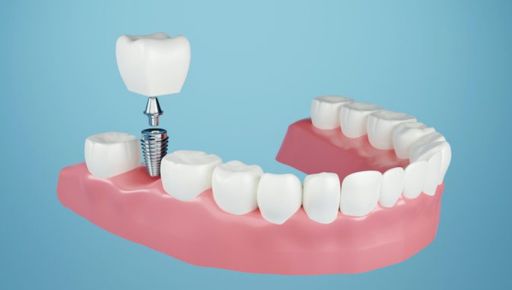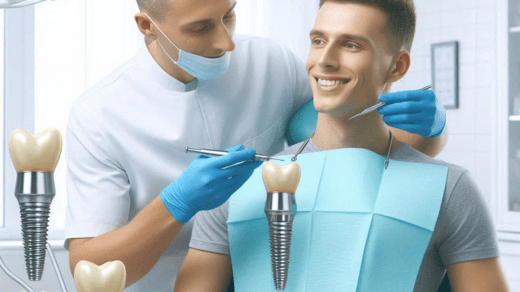If you are missing one or more natural teeth, you may want to consider dental implants for replacement teeth. A dental implant is like a post, usually made of titanium, that is placed inside or over the jawbone. It serves as the base for your replacement teeth. Dental implants become a permanent part of your mouth and don’t require extensive care. Before you discuss more details with your general dentist in Denton, TX, here is a comprehensive overview of the procedure.
Initial checkup
Your dentist will do a complete dental exam, which will include taking X-rays and 3D images. This gives them a fair idea of whether you are a good candidate for the treatment and how to proceed with the surgery. They will also discuss your medical history, medications you are currently taking, whether you are taking supplements, and if you have heart conditions. In some cases, a patient may need antibiotics before they can go for implant surgery. Your dentist will also discuss the sedation options. The most common one is local anesthesia, which is injected into the gums. You may also consider sedation if you have dental anxiety, while in limited cases, a dentist may suggest or talk about general anesthesia.
Bone grafting
If a patient has a soft jaw or lacks enough bone mass, the dentist may first proceed with bone grafting before implant surgery. Chewing puts incredible pressure on the jaw, and if the jawbone isn’t strong or the gums aren’t healthy, the implant surgery may fail. A bone graft helps create a solid foundation for the implants. There are diverse bone grafting materials. Your dentist may bone from another part of the body, while there are synthetic bone grafts available, as well. In some cases, it is possible to get bone from an animal source.
Implant surgery
It can take months for the jawbone to heal after bone grafting, and your dentist will usually ask you to wait. Once you are ready for implant surgery, you will get local anesthesia injected into the gums. The dentist will cut the gums to expose the bone underneath, following which they will drill holes in the bone. The implant is placed inside the jawbone (sometimes above it). Your dentist may give you a partial or temporary denture during the recovery period. After the surgery, it can take many weeks or months for the osseointegration process, where the implant becomes a part of the mouth. The next step is to place the abutment that will work as the anchor for your replacement teeth. This requires a minor outpatient surgery.
Getting replacement teeth
Once the jawbone has healed and secured the implant, your dentist will discuss replacement teeth options. They will take impressions of your bite to create molds. You can have removable dentures that attach to the abutment and remain in place, unlike conventional dentures that can slip or move around. You can also consider a permanent replacement in the form of crowns. One crown is attached to each dental implant, restoring the entire smile. Because implants are extremely durable and strong, it is possible to replace more than one missing tooth with a few implants.
Other things to know
You may have some swelling and inflammation after dental implant surgery, along with pain in your gums. Minor bleeding is also common. Your dentist will usually suggest pain medicines and antibiotics to help with the recovery. However, if you have extreme swelling or soreness that refuses to subside, call the clinic. You may have to also adjust your diet for a few days after the surgery to avoid additional pressure on the jawbone.
Find a renowned and reliable dentist in Denton NOW!




